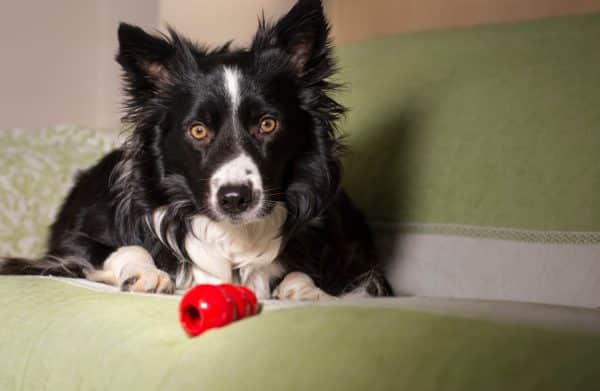Chickpeas, also known as garbanzo beans, are a nutritious member of the legume family that many people enjoy. Your dog can also eat chickpeas, experts say. These beans are safe for dogs, as long as you only feed them to your dog in moderation.
Generally, a good serving size is between one and five tablespoons a couple of times per week, depending on your dog’s weight, says Dr Nell Ostermeier, DVM, veterinary advisor to Figo Pet Insurance.
Read on to learn the best types of chickpeas for dogs, health benefits, and possible risks. We’ll also share a few other dog-friendly vegetables.
Are Chickpeas Nutritious For Dogs?
Chickpeas have some health benefits for dogs. They contain plenty of fibre and protein, along with other important vitamins and minerals.
According to Dr Ostermeier and Dr Carol Osborne, DVM, founder of Chagrin Falls Veterinary Center in the USA, chickpeas contain:
- Protein for healthy muscle development, immunity, weight, and coat
- Fibre for a healthy digestive tract
- Folate for overall health and wellbeing
- Potassium and vitamins A and B to promote good function of the muscles, nerves, and heart
- Magnesium for strong and healthy bones
Osborne also says chickpeas are low in calories. This makes them a good alternative to high-calorie treats, especially for dogs on a vet-recommended weight-loss diet.
How Many Chickpeas Can Dogs Eat?
Although chickpeas are generally fine for dogs to eat, giving your dog too many could lead to weight gain over time.
Like other foods meant for people, chickpeas shouldn’t replace your dog’s regular food. Experts recommend giving them as a snack or treat only.
Osborne suggests giving your dog no more than the following serving sizes, depending on how much they weigh:
- Small dogs (up to 11 kg /25 lbs): one tablespoon a few times weekly
- Medium dogs (11 to 27 kg/ 25 to 60 lbs): two to three tablespoons a few times weekly
- Large dogs (27+ kg/60+ lbs): four to five tablespoons a few times weekly
If you aren’t sure how much chickpeas your dog can eat, it’s always a good idea to talk to your vet. They can weigh your dog and offer more guidance on feeding snacks and treats as part of their diet.
How To Prepare Chickpeas For Dogs
Dr Ostermeier recommends preparing fresh chickpeas for your dog, which usually come dried in a bag.
You’ll need to remove the pods before you cook them, unless you buy pre-shelled chickpeas, while the skin is edible, and fine if ingested by dogs.
Then, cook them according to the package, using only water. Avoid salt or other added ingredients.
It’s best not to give your dog canned chickpeas, since they have a lot of salt. If you can’t prepare fresh chickpeas, however, you can get low-sodium canned chickpeas and rinse them before giving them to your dog, Dr Ostermeier says.
Chickpeas don’t pose too many health risks for dogs, but Drs Ostermeier and Osborne recommend the following safety tips:
- Cook them until they’re very soft so they don’t become a choking hazard
- Feed chickpeas as a food topper or mashed up and stuffed in a bone or Kong as an occasional treat
- Avoid using chickpeas as a meal replacement, since they don’t provide all of the nutrients your dog needs to stay healthy
- Give chickpeas to your dog only in moderation
Some dogs may have an allergy or sensitivity to chickpeas. This isn’t a common allergy, but it’s still important to monitor your dog’s reaction to chickpeas—and any new food—especially when your dog eats chickpeas for the first time.
Contact your vet if you notice any unusual symptoms or signs of an adverse reaction. Possible signs of a negative reaction may include vomiting, diarrhoea, or skin irritation.
What Other Vegetables Can Dogs Eat?
Dogs are omnivores, not carnivores, so they need some vegetables as part of their diet—just like people do!
While most commercial dog foods contain vegetables in addition to meat, you can also boost your dog’s veggie intake by offering them as a snack or an addition to kibble or wet food.
Many vegetables have vitamins, nutrients, and minerals that can support your dog’s health. Some vegetables your dog may enjoy include:
- carrots
- celery
- Brussels sprouts
- green beans
- spinach
- sweet potatoes





